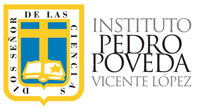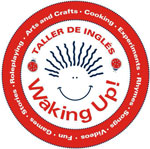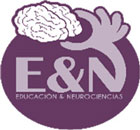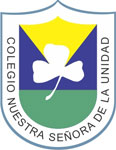Mindset and Grit: A Key to Student Motivation
By Laura Lewin
It´s not how good your students are; It´s how good you want them to be!
What happens when we change the way we look at learning?
The secret to outstanding achievement is not talent but a special blend of passion and persistence called “grit.”
When students believe that dedication and hard work can change their performance in school, they grow to become resilient, successful students.
Inspired by the popular mindset idea that hard work and effort can lead to success, this session will provides participants with ideas for ways to build a growth mindset classroom culture, wherein students are challenged to change their thinking about their abilities and potential.
Laura Lewin is an internationally recognized speaker, author and consultant, and for the past twenty five years she has been involved in teacher training. She has designed and delivered workshops for teachers and for ELT Managers all over South America, the United States and Europe. Laura is the President of the Organizing Committee of the International Conference of Professional Development for Teachers of English and Administrators, among other conferences. She pursued studies in translation in Argentina (UADE) and TESOL in the USA (University of California). Laura is an international teacher trainer for Cambridge University Press (UK), director of the Teacher Training program at CIEDA, Head of English at the Dante Allighieri and Holters schools, and author of six books: “Gestión Educativa en Acción” (Noveduc, 2015), “El Aula Afectiva (Santillana, 2016), “Que enseñes no significa que aprendan” (Bonum, 2017), “Anita & Ben” (Hola Chicos, 2018); “Aulas motivadas” (Hola Chicos, 2018) and “Mejores directivos, mejores instituciones educativas” (Bonum 2018 ).
Institution:
ABS International
Developing our Brain's Top Notch Executive Functions, Step by Step
By Lucrecia Prat Gay
Developing our Brain`s Top Notch Executive Functions, Step by Step
Biodata: año anterior
Our pre frontal lobes are the seat of judgement, values, critical thinking and impulse control. As teachers there is a lot we can do everyday to develop them and help our students become smarter. In this workshop we will share very practical ideas to address every executive function and rewire our brain through the power of Grit!
A life-long learner who has been teaching for 34 years and coordinating since 1990, she co-founded Río de la Plata Sur School and is its Head of English. Lucrecia is a Neurosicoeducator , with a Self-Esteem Practioner Degree. She has studied Brain Based Learning overseas, and has been successfully putting the model into practice for the last fourteen years. She has spoken at countless conferences and seminars throughout the country and abroad sharing her passion for the brain and the role of emotions in learning and is now an International Teacher Trainer for Oxford University Press and a Speaker for Asociación Educar. She has also taught Literature for the IGCSE Exams, is a “retired actress” who worships Shakespeare and a loving mother to Juan and Jazmin. Her first book “From Passion to action” will be printed shortly.
Institution: Asociación Educar & Colegio Río de la Plata Sur
Life Skills under the Microscope
By Alejandra Ottolina
It is a fact that the organization of language practice contributes significantly to language learning, especially in our EFL reality, but if we agree that our students have changed in the last ten years, it is then only logical that our practice strategies and standards ought to change as well.
Life Skills open an important door as they provide a different framework. But do we know what they are? How can we introduce this concept into our teaching? What implicatures will this kind of work have? What is the connection between Life Skills and Production Mileage?
Join us! We will work together towards a more purposeful class.
Alejandra Ottolina is an experienced teacher trainer who has taught all levels in both private and public sectors. A graduate from I.N.S. del Prof. en Lenguas Vivas J. Ramón Fernández, Alejandra is Macmillan’s Academic Consultant and also Director of Studies at SANTA MONICA School of Languages, supervising the English department of schools and institutes in different provinces. Alejandra has lectured in Argentina as well as in neighbouring countries and has authored the teacher’s books of Insights 1, 2 and 3, Winners 1, 2 and 3, Phases 1, 2, 3 and 4, among others.
Institution: Macmillan education
Emotionally Intelligent Classrooms: what are they? what do they look like? how are results measured?
By Monica Rodriguez Salvo
Developing emotional literacy should be one of the top priorities in Education. We all know the pivotal role emotions play in the classroom, so why not developing them to their full potential? In this workshop we will share different approaches to Social and Emotional learning, as well as the evidence behind it. We will also analyze the role of emotional development for teachers as well as students, both from an Institutional perspective as well as from a personal development one.
Monica is a “Prof Nacional de Inglés” graduated from Instituto de Enseñanza Superior “Victoria Ocampo”,Entre Rios. She is also Traductora Pública Nacional from UMSA, and holds a degree as “Licenciada en Dirección de Recursos Humanos”, Universidad de Belgrano. She also graduated as Mindfulness practitioner for Education Level 2, from University of California, United States.
Monica has worked as a teacher for more than 18 years, and as teacher trainer, she has delivered professional development courses on methodology,assessment, ICT in the classroom, Social and Emotional Learning and Mindfulness for Education in Argentina, Uruguay and Chile. She has also developed and delivered courses and materials for teacher training courses.
Currently she runs her own educational company. She also worked as Regional Coordinator, Academic Consultancy Unit and Teacher Trainer for Pearson Education Argentina, Peru, Chile, Ecuador and Paraguay, being responsible for the project “Efficacy”, focused on Educational Research and Learning outcomes.
She is a tenured Speaker and workshop facilitator, having delivered more than 40 workshops, semi plenaries and plenaries in events such as t IATEFL Chile 2015, Faapi 2015 and 2016, ARTESOL 2014,FAAPI 2014, Mindful Teaching in Montevideo, Uruguay in 2016, Anglo Congress Uruguay, etc
As an author, she has developed a new and innovative section on Social and Emotional Learning for the 3rd edition of the book “What’s up”, written specifically for teenagers, where she contributes tips and activities to help our students tackle and embrace their passions, regulate their emotions, communicate positively and contribute from a social perspective to society.
Institution: inspirED
Creativity & Motivation through Non-Formal Learning
By Grace Bertolini
Between the pressure of keeping up with the school curriculum and running daily classes, it can be hard to make time for creativity and motivation in the classroom. In creative classrooms students express their ideas, think outside the box, while learning faster and effectively. We will share how to implement Non- Formal Learning through creative learning experiences, working with Videos, Proverbs, Graffiti, Songs, Comics, Advertising, Lateral Thinking, Brain Teasers, Mind Games & Technology. In this interactive Workshop, you will learn creative techniques for producing creative results!
Grace Bertolini is an experienced Teacher of English as a Foreign Language. For more than 30 years she has taught all levels and ages. She is a Bilingual Facilitator for Peace Education Foundation and lectures on Social Emotional Learning and Conflict Resolution at school. As Creative Teaching Director, she delivers Professional Development Workshops and Courses nationwide and abroad on Teaching EFL effectively.
Institution: Creative Teaching
Emotions in my Class
By Alejandra Del Fabro
Students of all ages can learn how neuroplasticity works, how to use conscious strategies to reduce the stressors that kill focus and memory as well as the top conditions for their own best learning and studying.
Come and learn which neuro-logical strategies promote information to pass through the brain's emotional filters to reach the most powerful cognitive control centers in the prefrontal cortex.
A lesson for life.
Mother of Sofía and Juan Manuel, Alejandra started to teach English at 15.
She has been teaching for 30 years.
Fifteen years ago she came across with Neurociences. She became so passionate that she studied brain based learning in the US, UK and Argentina, where she became a Neurosicoeducator. At present she is a teacher trainer for Asociación Educar. Her mission is to make a positive and meaningful difference. She strongly believes in Education to make the world a better place to live in. Alejandra is the author of "Educando El Genio, para ser emocionalmente más inteligente"
Institution: Asociación Educar
How much do we know about ADHD?
By Verónica Ederra
Each day more children are diagnosed with some subtype of ADD (Attention Deficit Disorder). During this presentation we will know the characteristics that the student presents, in front of the study and social relations, throughout the different stages of school life. We will analyze the most effective strategies and tools to achieve an improvement in the educational environment. We will know the most frequent comorbidities and relevant aspects of the educational plan. The school plays an important role in the life of these children as they spend many years of their life immersed in that environment. It is in our hands to learn the keys and tools to intervene with these students. Children with ADHD are very vulnerable to take unnecessary risks in adolescence and it is our responsibility as educators to accompany them and guide them so that they know how to evaluate and make the best decisions.
Veronica Ederra holds a Degree in psychology and a Postgraduate degree in Special Education, Making Thinking Visible at Harvard University, and Teaching Students with Autism: Strategies for Success.
She currently works as the Elementary School Learning Center , at Lincoln International School of Buenos Aires . For the last five years she has attended major Conferences in Colombia, Peru, Chile among other countries as a plenary speaker, related to DIBELS/IDEL , Dyslexia, ADHD/ADD. She has conducted training programs for teachers on useful accommodations and strategies for students with Special Needs in Latin America as well.
She is also a Senior Academic Consultant for Books Services Company, representing the English teaching materials of Express Publishing and providing occupational support and additional training to English teachers throughout Colombia, Peru, & Central America.
Institution: Express Publishing
Global Citizenship Education: The role of Technology
By Daniela Zalloco
Global Citizenship Education (GCED) aims to empower learners to assume active roles to face and resolve global challenges and to become proactive contributors to a more peaceful, tolerant, inclusive and secure world. Being a Global Citizen requires our students to develop not just knowledge but also the socio emotional and behavioral skills required to live in a world with new challenges. During this workshop we will focus on the role technology can play as a way to develop GCED in your class.
Daniela Zalloco works as a project coordinator at the Ministerio de Educación de la Nación. She holds a CELTA and CELTYL certificate( Cambridge University), a Bachelor in Politics (Universidad de Buenos Aires) and a Masters in Policies of Education (Universidad Torcuato Di Tella).
In 2012, her webinars for English Teachers were nominated to an ELTon Award ( British Council), in Local Innovation Category. In 2014, she was selected among 5000 candidates from 180 to participate in UNESCO ESD Conference in Nagoya, Japan.
She has also participated in the 2nd Global Citizenship Education Training workshop organized by APCEIU UNESCO in September 2017, in Seoul, Republic of Korea.
Institution: Connect English On line
Changing Paradigms: Leading a Culture of Thinking
By Valeria Goluza & Gabriela Díaz
A change of paradigm involves a deep modification in a model or in the way we perceive events around us. In our educational context, creating a Culture of Thinking meant stepping outside our comfort zone and diving into new and unknown challenges. Leading teachers into this new world implied going through different stages and confronting varied obstacles, all of which, led us to strengthen our vision that today our students are better equipped for an uncertain world.
This presentation will address those stages we went through together with an analysis of the obstacles we faced and strategies we used to overcome them. We will share some ideas which concern the early implementation of the first thinking routines we applied up to our more recent innovations and methodological adaptations bearing in mind our context and the frameworks of Teaching for Understanding and Thinking Visible used in our institution.
Our objective is to create a genuine Culture of Thinking at an institutional level. We believe that knowledge which is built through a Culture of Thinking will contribute to give answers to new situations our society will face. Which are some of the tools available for leaders? Which steps might be taken? It is our objective to share some of the strategies we implemented as leaders of this change in our school.
We will invite the audience to draft an action plan for future implementation at their own institutions. Participants will have the chance to analyze their stage of development and recognize processes and challenges they might face or might have faced.
Valeria Goluza is a teacher of English and has a Bachelor Degree in English from Belgrano University. She then continued her studies at Buenos Aires University where she became a certified translator and interpreter. She developed her career in the educational field where she worked in all levels. She also attended Project Zero institute at Harvard University and took several online courses at this institution. She participated as a speaker in many workshops connected with thinking skills and task-based learning. Since 2006, she has been working as a headteacher at Grilli Canning College where she led a change towards a Culture of Thinking.
Gabriela Diaz a teacher of English graduated at Joaquin V, Gonzalez Teachers`Training College where she specialized in methodology and teaching practice. She also took several online courses on Thinking Visible and Teaching for Understanding at Harvard University. Besides, she has participated and organized many workshops connected with thinking skills, task-based learning, teaching English to children and teenagers and supervising teachers, among others. She has experience in all levels of the Argentine educational system. Since 2013, she has been working as a vice headteacher at Grilli Canning College where she led a change towards a Culture of Thinking.
Institution: Colegio Grilli Canning
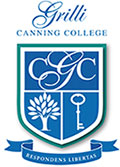
Drama in the Classroom
By Cata Huberman
How does a student feel when they enter our Classroom? While putting ourselves into their bodies we'll explore the challenges our students face in the everyday lesson. Through the Art of Theater and diversive Drama Techniques workshop participants will learn different strategies to motivate, involve and challenge students.
The workshop will be divided into three stages.
We'll discuss the expansion and contraction students need during the lessons. I'll provide different games and activities to create fast focus and motivate concentration. We'll experience new feelings and involvement through Drama Techniques.
Secondly, I'll provide basic Drama Games and Activities to apply different learnt vocabulary and grammar. Nowadays, children, adolescents and adults have to put an extra effort even to stop watching their cellphones. Our classes need to be dynamic, entertaining and fun! This activities will spice up our syllabus.
Finally, we'll share the use of Drama for other class objectives such as group building, confidence boosters, speaking in public, etc. These extra games and activities will make our classroom more friendly and containing for students to develop other types of abilities.
Overall, the workshop will provide a variety of tools and activities for teacher to apply in their classroom. The introduction of Drama as a fundamental tool in the development of their klowledge.
Cata Huberman is an actress and theater director. She studied in AMDA (American Musical and Dramatic Academy) in New York. Fond of education, she devoted herself into assiting teachers and students into de Art of Theater. A drama teacher in different institutions and schools.
Institution: Instituto Pedro Poveda
Rhyming to Succeed
By Jorgelina Perez
Nursery rhymes, verses and chants have a universal function since they are present in every culture since the beginning of time. They are part of an oral tradition, which we also seek to transmit when teaching a foreign language. This universality makes them crucial to build up language and culture, and to develop cognitive, physical and socio- affective skills.
It is important to highlight that listening precedes oral production. Therefore, the early exposure to the sounds of a foreign language through rhymes and songs develops phonological awareness. These songs and verses show children not only how consonants and vowels sound but also how they are put together to form words. The musicality of the verses fosters musical intelligence and contributes to strengthen articulation and discrimination of sounds, diction, pitch and intonation. In this way, nursery rhymes contribute to give shape to the first building blocks of literacy. What’s more, they are easy to learn, memorize and recite, which means they help children learn vocabulary more effectively and they provide the opportunity to verbalize full sentences unconsciously.
Music feeds and awakens the whole brain. Therefore, nursery rhymes and traditional chants also have a primary role in building up cognitive skills. They develop attention, observation, memory, and they lead children to eventually elaborate and organize mechanisms to construct meaning. Nursery rhymes are also a child’s first contact with literature. They are short poems with a narrative sequence of events and a conflict to be solved. They enhance children’s sequencing skills and conflict resolution and they provide a unique context to feed creativity and imagination.
The early exposure to nursery rhymes also contributes to develop a child’s socio-affective skills. Our brain is social and learns better when it feels safe and when it can make predictions. Nursery rhymes offer a safe predictable environment, which is very important for young learners to take their first steps into learning a language. A stress-free friendly environment also promotes self-esteem and help children to build bonds. When children feel secure, they dare to make mistakes, to take risks, and to take active participation to construct knowledge. Learning becomes then memorable and long lasting.
Nursery rhymes and chants offer us a unique environment to stimulate children, their senses, their critical thinking and their communicative skills. As teachers we should be aware of these songs and verses’ relevance in the EFL classroom since music strengthens the mind, heals our souls and opens paths to communicate.
Jorgelina Pérez graduated from FFyL, at UNCuyo Mendoza, Argentina as a university professor in English Language and Literature. She has also attended and completed several graduate seminars in the Literature Master’s degree at FFyL, as well as other post graduate courses specialized in children’s education.
Institution: Waking Up
Waking Teens up!
By Sandra Frattini
This workshop is about considering how today’s teenagers act and react to traditional education policies. Policies and rules that still deal with strict marks, strict rules, strict teachers, teachers who have not been updated on the latest trends (Neurosciences, Multiple Intelligences etc) and so on and so forth. They fall asleep on classroom layouts, on long multiple choice activities, on a “fill in the blanks with some or any” exercise with 30 points, on classes without any visual input.
The aim is to share with you some tips and ideas to wake them up and make a 360 ° change in the way you teach in order to boost motivation and to make them love the learning process. Besides, showing you how their brain works and why it is so important to consider it while preparing a lesson for them.
Adolescence is a time of significant growth and development inside the teenage brain. You are an important part of their environment. How you guide and influence them will be important to build a healthy brain.
We can do that by encouraging positive behavior, promoting good thinking skills, helping them get lots of sleep (which is a key issue nowadays) and many other things which are relevant in our classrooms.
Sandra Frattini, teacher of English from Joaquin V Gonzales, practitioner in PNL applied to education from Escuela de PNL y Coaching. Master Practitioner in PNL , Neurosicoeducator at Asociacion Educar (last final proyect pending), Curso de capacitación docente en neurociencias aprobado; and Coach Ontologico from Axon Training. She is the founder of SF IDIOMAS that has been giving training in companies for more than 20 years, recently founded E&N (Educación y Neurociencias).
Institution: E&N Educación y Neurociencias
Teenagers Teach, Teachers Learn!
By Silvina Fernandes & Erica Cavallini
Let’s face it. No matter how hard we try, what brilliant ideas, top notch technology, proven methodology, valuable resources, smartest discipline, authoritative authority we bring into the classroom; none of these serve today’s teens-teaching purposes. With our best intentions, we end up imposing, intervening, judging, testing, correcting, disapproving, and even worse… disappointing our teens. We fail to reach the restless teen spirit once and again. We endure rejection, anger, complaint, boycott, fear… Sad but true: we loose them at ‘hello’. While we struggle to bring them into the status quo for their good, they force us out of our safe zone -for our good! Oh, yes… This we have to admit: growth and development lies outside our comfort zone.
In today’s changing world, where almost all the known systems are at stake and in a process of constant mutation, our role seems to be that of facilitators of transition into a more caring, committed, efficient, ecologic, and more loving world: into a more conscious world.
So…Who dares teach adolescents? Big challenge, huge mission! This workshop is only for brave teachers. Can we, teachers, adults, come to terms with staying outside our comfort zone. Can we make peace with boycott? Are we ready to face the frustrated inner child? Are we brave enough to allow teenagers mirror us? Are we ready to hold their look into our eyes and allow them to see inside us? Are we ready to allow them to take today’s world into a whole new world?
This workshop offers activities, resources and strategies, to self-manage emotions, to teach for youth success, to acknowledge students’ talents, to build the best possible context to enjoy teaching and learning with teens. And to be ok with all of it!
Silvina Fernandes is a teacher of English (USAL), a Neurosicoeducator and a teacher trainer. She has specialized in “expressive resources”, NLP and Educational Coaching. She has been coordinating emotional education workshops for kids and teenagers at San Agustín School (CABA). She has been delivering presentations at educational institutions and educational Congresses in CABA, San Luis and Uruguay. She is the author of “Educación en Positivo” (CEPA). www.silvinafernandes.com.ar.
Erica Cavallini es Licenciada en Lengua Inglesa (UADE) y Profesora en Lengua Inglesa (Lenguas Vivas “J.R. Fernández”), capacitadora docente y ex-coordinadora del departamento de ingles del Colegio Bertrand Russell. Fundadora y CEO de Mujer Íntegra, Coach de emprendedores y autoras. Actualmente cursa el Diplomado en Salud Primal (Universidad de Concepción, Chile).
Institution: Silvina Fernandes educación.neuro.emocional
The Journey to Journaling
By Valeria Lasala Garrahan & Silvia Munton
Journaling consists of freely writing down feelings and thoughts on every-day life. Whereas it can take many forms and can be used to meet specific goals, -such as preparing the class to transition into the day‘s activities, using the drafts for future assignments or rounding up the day- these writings are not corrected by the teacher, as personal opinions are not considered right or wrong, and are only shared with the writer‘s consent. This privacy factor is key for students to open up and build confidence. When shared, teachers may comment or suggest a course of action as regards the content, not the language, thus bridging trust and strengthening ties.
Scientific research has proved expressive writing beneficial for both mental and physical health, as it helps to overcome trauma, prevents diseases and boosts the immunological system.
In the child, expressive writing releases tension, and gives way for creativity to flourish.
Emotional intelligence amplifies, as seeing one‘s own thoughts on paper helps process impulsive reactions. Written reflections foster more conscientious and responsible behaviour. In the teenager especially, he may overcome the fear of expressing his own opinion, and gradually learn to value his own beliefs and respect others´ perspectives. Peer pressure is reduced and acceptance of other‘s differences increased . Decision-taking therefore becomes a personal matter. Personal writing clarifies and organizes our thoughts, which helps to find a solution to our problems.
In the learner of English, focusing on the content more than the style, allows thoughts to expand: rather than thinking first and then writing, thoughts develop as the writing progresses; one discovers different perspectives which would never have arisen otherwise, as we have more time to reflect. When one‘s own ideas are clear on paper, expressing them orally becomes easier. Getting used to writing ideas, opinions or feelings without restrictions, provides self-confidence for more formal assignments. Fluency is ensured and writings can then be adjusted to meet international standards.
In this session we will provide real examples of how journaling helps students focus and build skills, as well as practice for ourselves how personal writing enables us to become aware of our own inner world and relate better to others.
Valeria Lasala Garrahan graduated in Lenguas Vivas in 1995. She has worked as a primary and secondary teacher in different private schools in Zona Norte taking different roles. She has attended several courses on journalling and has used the tool in her classes with different scope. At present she works at Newman college as a secondary teacher and librarian.
Silvia Munton is a secondary teacher and psichologist. She has used the "journaling" method with secondary students to deal with students´social and personal issues. She has worked for many years as a librarian and has just retired from Northlands Nordelta to devote her time to applying "journaling" with her private patients.
Institution: Cardenal Newman
Visible Shakespeare
By Alejandra Simari
Shakespeare is a must for English teachers. Whether you work in secondary schools or in teacher training colleges, you are bound to cross paths with the Bard. His canon is as well-known as it is feared by many (students and teachers alike). A selection of tragedies, comedies and sonnets will be discussed, delving into Shakespeare’s artistic skills.
Visible Thinking is an approach to foster critical thinking while teaching content. It was developed by Harvard’s Project Zero and can be easily applied to all levels of education. Graduate teachers and students in teacher training will profit from refreshing activities that are flexible and cater to all tastes.
This workshop intends to work on Shakespeare’s most beloved and famous plays & sonnets, implementing useful techniques from the Visible Thinking Approach. The aim of the session will be to boost critical and creative thinking and, at the same time, shed light on Shakespeare’s dexterous handling of language, characterisation and dramatic effect.
Alejandra Simari is a teacher of English graduated from ISP "Joaquín V. González", where she specialized in Literature III (Shakespeare). She holds a BA in English Language from El Salvador University.
She has 12 years' experience in teaching Medieval & Renaissant Literature and History. She has worked at IES en Lenguas Vivas "Juan Ramón Fernández" and at ISP del Consudec in charge of English Literature I and English Literature III.
Currently, she teaches Language & Culture IV at Instituto Superior de Formación Docente N° 52, "Maestro Francisco Isauro Arancibia", in San Isidro. Moreover, she is head of English at Secondary Education in Nuestra Señora de la Unidad School in San Isidro.
Institution: ISFD 52 / Colegio Nuestra Señora de la Unidad
Brain-Compatible Classes for Kinder and Primary
By María Sofia Lorenzo
To have a successful class we should know how the brain works and how can we create a brain-compatible class where emotions and multiple intelligences are included. If we want our students to love the language we need to build connections and to become part of their world. In this workshop we will learn:
• Classroom strategies, songs, stories and funny activities to use in our plans and classes.
- Emotional Intelligence activities to work with little kids.
• Multiple Intelligences strategies to work in our classes and how to include them in our lesson plans.
• Brain-compatible elements to develop in our class such as attention span, growth and fixed mindset strategies and the classroom atmosphere.
This will be an interactive workshop and we will learn a lot and enjoy it while we have fun like little kids.
Maria Sofia Lorenzo is an experienced English Teacher graduated from "Instituto Superior Josefina Contte", Corrientes, Capital. She is a neurosicoeducator (Asociacion Educar) and a specialist in Neuroscience ( UNAM). She is the Director of studies of Yellow Submarine, English Institute specially designed for little kids. She has delivered seminars and workshops for the Ministerio de Educación de Corrientes about "teaching strategies for kids" and "Teaching with Neuroscience" for teachers and directors.
Institution: Yellow Submarine

Leading Teachers in the XXI Century
By Laura Lewin
50 years ago, relationships were the most important thing in education, and 50 years from now it will be more so. Do our teachers feel valued when they come to school? Do we seek to simply engage them in content, or do we seek to empower them to create? How can we raise achievement levels, motivate them, and get results?
Your success, and the success of your institution, is tied directly to the quality of people you attract to your school, your proficiency in getting those teachers to consistently perform up to and possibly beyond their potential, and your ability to keep them for as long as possible. And all of these hinge on one thing: their engagement. Come to this session to learn how we can better lead and develop our main asset: our teachers.
Laura Lewin is an internationally recognized speaker, author and consultant, and for the past twenty five years she has been involved in teacher training. She has designed and delivered workshops for teachers and for ELT Managers all over South America, the United States and Europe. Laura is the President of the Organizing Committee of the International Conference of Professional Development for Teachers of English and Administrators, among other conferences. She pursued studies in translation in Argentina (UADE) and TESOL in the USA (University of California). Laura is an international teacher trainer for Cambridge University Press (UK), director of the Teacher Training program at CIEDA, Head of English at the Dante Allighieri and Holters schools, and author of six books: “Gestión Educativa en Acción” (Noveduc, 2015), “El Aula Afectiva (Santillana, 2016), “Que enseñes no significa que aprendan” (Bonum, 2017), “Anita & Ben” (Hola Chicos, 2018); “Aulas motivadas” (Hola Chicos, 2018) and “Mejores directivos, mejores instituciones educativas” (Bonum 2018 ).
Institution:
ABS International
Set up a Professional Learning Community for Change and Innovation!
By Susan Hillyard
In this workshop we will explore the meaning of “Professional Learning Communities”, through analysing a number of models and considering the value of planning and launching a PLC in the context of our school environments.
We will define PLCs and why they are considered to be important, basing some of these concepts on recent theories of connectivism and trust. The skills for motivating and inspiring a whole school culture through reference to Maslow and McGregor will be examined while the concept of both Heads and Teachers as learners in their own right will be stressed.
Finally, strategies for launching a PLC in an Argentine school will be discussed.
Susan has a B.Ed. (Hons.) degree from Warwick University in UK. She has played many roles in her long career: Teacher, Head of Dept, Teacher Trainer, Conference Speaker, Workshop Facilitator, Materials Writer, Researcher, On-line tutor and Webinar Presenter.
She is former Coordinator of English in Action, training twenty teachers to teach English through Drama in Special Education, via blended learning. Presently she is founder and Director of SHELTA, Susan Hillyard’s English Language Teachers’ Academy. Her interests lie in Inclusion, Drama for ELT, Global Issues, World Englishes, Teacher Development and Trainer Training.
Institution: Macmillan Education
Stop Putting Out Fires: Project Management in Education
By Sara Brathwaite
Do you spend your day frantically trying to get everything done? Do you find yourself solving problems and putting out fires, instead of working on your projects? Do you ever run out of time to get projects done? This presentation is designed to help current administrators in schools and language programs manage projects and complete tasks. Through proven methodologies and team-based exercises and simulations, participants will learn how to develop and implement projects in a organized and effective way. Instead of spending your day putting out fires, learn how to prevent fires before they happen!
Sara has a Master's Degree in Applied Linguistics/TESOL from the University of Alabama, and a Bachelor's degree in Spanish and Linguistics from Wake Forest University. She is completing a professional certificate in project management at the University of California Riverside. Prior to coming to UCR, she taught English and trained teachers in San Jose, Costa Rica. She was also an ESL teacher in Tuscaloosa, Alabama and Waldorf, Maryland. She has visited five countries on three different continents. In her free time, she enjoys keeping up with friends and family around the world, exploring beautiful Southern California, and improving her Spanish and Portuguese.
Institution: University of California – Riverside
Strategies to Work towards an Inclusive Class
By Alejandra Ottolina
Our educational reality seems to have become more complex, and we unexpectedly find ourselves dealing with situations we have not been trained for. We are supposed to help the teachers in our team work with students with special needs. But what “Special Needs” are we talking about? Can a “Dyslexic” student learn English? What can/ should be done with “Inattentive” learners? Are these the only difficulties in our ELT classes?
After a brief characterization of the most frequent disorders, we will work on simple strategies to pass on to our teachers.
Alejandra Ottolina is an experienced teacher trainer who has taught all levels in both private and public sectors. A graduate from I.N.S. del Prof. en Lenguas Vivas J. Ramón Fernández, Alejandra is Macmillan’s Academic Consultant and also Director of Studies at SANTA MONICA School of Languages, supervising the English department of schools and institutes in different provinces. Alejandra has lectured in Argentina as well as in neighbouring countries and has authored the teacher’s books of Insights 1, 2 and 3, Winners 1, 2 and 3, Phases 1, 2, 3 and 4, among others.
Institution: Macmillan education
The Ultimate English Pronunciation Clinic for Coordinators
By Chris Kunz
This session has been designed to help all participants perk up their own as well as their teachers’ English pronunciation with juicy bits of theoretical and practical instruction.
Chris will explore areas such as word and sentence stress, intonation, future trends in the pronunciation of English as well as those most common mistakes speakers of Spanish may well make when “Englishing”.
Brainstorming around and scrutinising the pronunciation of English will not only help participants achieve higher levels of communication, but it will also bridge the gap between unrealistic pronunciation practice and realistic pronunciation training in action.
Join Chris Kunz for this interactive presentation and walk out a revamped pronunciation specialist!
ELT Professional in Argentina, Australia and UK for over 20 years. Senior Director of Studies at Kensanglia Schools of English, Buenos Aires. Has vastly lectured in a large number of countries in Latin America and Europe on ELT Pedagogy, Advanced Language for teachers and English Phonetics and Phonology since 1997.
Has been involved with the Anglia ESOL Examinations Testing Services since 1996. Is the Anglia Director within the Ibero-American Network. Holds the Cambridge/RSA Certificate and Diploma in ELTA.
Main interests: "Evolution of and Changes in Spoken English", "Diversities of English Accents" and "Teacher/Trainer Training".
Now divides his time between Chichester College, England, as EFL Lecturer, where he teaches all levels, and Anglia ESOL Examinations in Latin America, Spain and Portugal. Has been a Facilitator/Interlocutor in UK for several exam boards for Skills for Life Examinations. Has delivered the Phonology Modules of LSC Skills for Life Quality Initiative Professional Development Programme in UK.
Has been a Senior Speaking Assessor and Speaking Assessor Trainer for Anglia ESOL Examinations since 1997.
Institution: Anglia/ Chichester College


What Amazing Heads do Differently!
By María Belén González Milbrandt
So much depends upon heads. Recent research has found that at least 70% of the variance in employee engagement scores is driven by who the boss is and this clearly affects institutional performance.
What makes a great head? What do they do on a daily basis that distinguish them?
Employees tend to be happiest when they feel free to give their best, to contribute new ideas and take initiative, and most leaders claim they want people who do just that. So why doesn’t it happen more often? What do we need to change? How?
The opportunity is huge for better-run organizations and a higher quality of life for workers. In the future, it’s a good bet that the most successful institutions will continue to be the ones with the best managers.
If you head up a team, make sure you come to this workshop and leave with an array of best practices that make work much more meaningful and enjoyable and leads to the success of your organization!
María Belén González Milbrandt holds a Licentiate degree in Educational Sciences and is a graduate teacher of English from IES Olga Cossettini (Rosario). She is a marketing analyst and has studies in Human Resources. She is founder and president of Fundación Altum.
She is English Department Coordinator at Colegio Sol de Funes and has worked as educational consultant for various organizations.
She has broad experience in organizing and supervising tailor-made courses for companies as well as congresses and other events for teachers and translators.
She has designed and delivered workshops and training courses for teachers and coordinators in the fields of business English, management strategies and methodology.
María Belén is an inspirational and passionate speaker who is always willing to share her knowledge and experience!
Institution: Fundación Altum
Planting Seeds of Change through Empathy and Collaboration
By Grace Bertolini
With the diversity of students entering classrooms each day, it is more necessary than ever for schools to actively construct a positive classroom culture. Every school needs to provide students with a safe and supportive classroom environment that facilitates active participation and engagement. How can schools teach students to identify emotions and strategies to tune in to feelings? How can we develop moral identities and build empathy to understand someone’s thoughts, feelings and needs? How can we help students practice kindness and cultivate collaboration? If you need the answers to these questions, come to this Workshop to learn effective ways to foster Empathy and Collaboration in your institution while growing “Changemakers” who want to make a difference.
Grace Bertolini is an experienced Teacher of English as a Foreign Language. For more than 30 years she has taught all levels and ages. She is a Bilingual Facilitator for Peace Education Foundation and lectures on Social Emotional Learning and Conflict Resolution at school. As Creative Teaching Director, she delivers Professional Development Workshops and Courses nationwide and abroad on Teaching EFL effectively.
Institution: Creative Teaching
Heading for Institutional Synergy? Mind the Generation!
By Silvia Breiburd
Each generation brings with them their own beliefs, perceptions, and values affecting the way things are done at schools. Creating synergy within institutions may help build stronger collaboration bonds, lower attrition rates , and support organizational learning right from the start. This workshop will profile the generations that impact upon educational centers and will provide attendees with lots of strategies of easy implementation and proven results that build sustainability and strengthen the formation of inclusive learning communities that include all stakeholders alike.
Silvia Breiburd is a teacher of English (CON.SU.DEC), and a lawyer (U.B.A). She holds a Licentiate Degree in Education (U.V.Q) and a Diploma in Applied Educational Leadership and Management (University of London). She has specialized in differentiated leadership and the implementation of a generational –friendly approach to teacher induction and professional development.












